Intentar ORO - Gratis
Welcome to the Civilization of the Liar's Paradox
Philosophy Now
|June/July 2025
Slavoj Žižek uncovers political paradoxes of lying.

The so-called Liar Paradox - statements like 'everything I say is false' - has been endlessly debated by philosophers from Ancient Greece and India to the twentieth century. The paradox is that if this statement is true then it is false (everything I say is not false), and vice versa. Instead of getting lost in the endless network of arguments and counter-arguments, I will turn to Jacques Lacan (1901-81), who offers a unique solution by way of distinguishing between the content of an enunciation and the subjective stance implied by this enunciation: between the content of what you are saying and the stance implied by what you are saying. The moment we introduce this distinction, we immediately see that a statement like 'everything I say is false' can itself be true or false. 'I am always lying' can either correctly or incorrectly render the subjective experience of my entire existence as inauthentic, a fake. However, the opposite also holds: the statement 'I know I am a piece of shit' can in itself be true in its content, but false at the level of the subjective stance it pretends to render, since even saying it implies that I somehow demonstrate that I am NOT fully 'a piece of shit' - that I am at least honest about myself... But our reply to this should be a paraphrase of the well-known Groucho Marx line: "You act like a piece of shit and admit that you are a piece of shit, but this will not deceive us - you are a piece of shit!"
Why lose time with such endlessly debated paradoxes? Because in our 'post-truth' era of Rightist populism, the practice of relying on this paradox has reached its extreme. So today's political discourse cannot be understood without the distinction between the enunciation and the enunciated.
Let's
Esta historia es de la edición June/July 2025 de Philosophy Now.
Suscríbete a Magzter GOLD para acceder a miles de historias premium seleccionadas y a más de 9000 revistas y periódicos.
¿Ya eres suscriptor? Iniciar sesión
MÁS HISTORIAS DE Philosophy Now

Philosophy Now
Pharmaco-Metaphysics?
Raymond Tallis argues against acidic assertions, and doubts DMT discoveries.
7 mins
August/September 2025

Philosophy Now
Nine Spiritual Exercises
Massimo Pigliucci explains how to get Philo-Sophical.
3 mins
August/September 2025

Philosophy Now
Books
We follow mammal's search for meaning, as Mark Vorobej savages John Gray's book of impractical cat philosophy, while B.V.E. Hyde ponders the point of Jordan Peterson. In Classics, Hilarius Bogbinder reviews Plato's Republic.
21 mins
August/September 2025
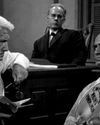
Philosophy Now
The Centennial of the Scopes ‘Monkey’ Trial
Tim Madigan on the creation and the evolution of a legend.
14 mins
August/September 2025
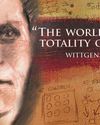
Philosophy Now
Gödel, Wittgenstein, & the Limits of Knowledge
Michael D. McGranahan takes us to the edge of language, mathematics and science.
10 mins
August/September 2025
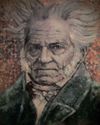
Philosophy Now
Weltschmerz and the World
Ian James Kidd takes a realistic and global view of the history of pessimism.
10 mins
August/September 2025
Philosophy Now
What Makes A Work Of Art Great?
Each answer below receives a book. Apologies to all the entrants not included.
16 mins
August/September 2025
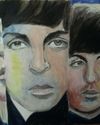
Philosophy Now
The Beatles: Nothing is Real
Clinton Van Inman gets back to the psychedelic Sixties.
4 mins
August/September 2025

Philosophy Now
The Post-Truth Kerfuffle
Susan Haack, who is Distinguished Professor in the Humanities, Cooper Senior Scholar in Arts & Sciences, Professor of Philosophy, and Professor of Law, at the University of Miami, talks with Angela Tan about how and when we know.
11 mins
August/September 2025
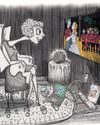
Philosophy Now
A Crisis of Attention
Paul Doolan attends to our culture of attention demanding.
13 mins
August/September 2025
Listen
Translate
Change font size
